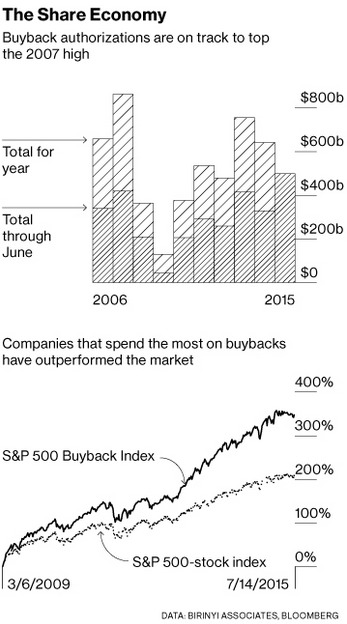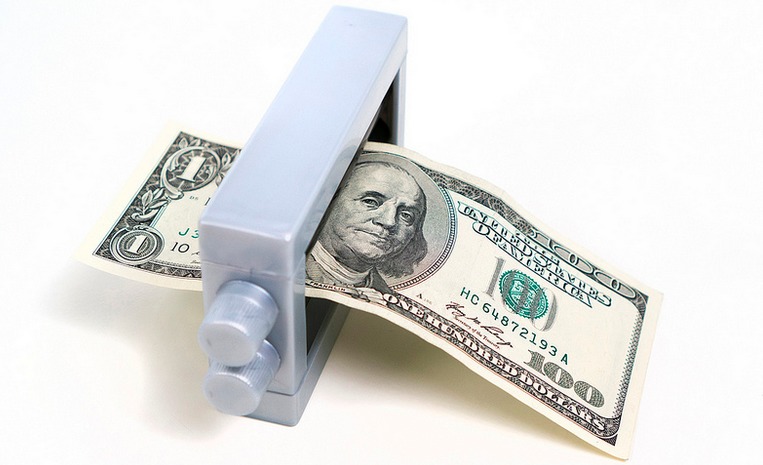Corporate stock buybacks are all the rage and on track to hit the $1 trillion mark in the U.S. by year-end.
Cash-rich companies such as Apple (AAPL), Coca-Cola (KO), Allstate Corp (ALL), McDonald’s (MCD), Northrop Grumman Corp (NOC) and Monsanto (MON) have been praised for the willingness to return cash to shareholders.

Investor Windfall
Investors certainly benefit when U.S. companies increase stock buybacks and boost dividends.
But what about the overall economy?

Skeptics
Critics say the trend has artificially propped up the market, discouraged CEOs from reinvesting in new and job-creating ventures and may have even contributed to widening U.S. income inequality.
William Lazonick, a professor of economics at the University of Massachusetts Lowell, writing in the Harvard Business Review, notes that from 2003 through 2012 some 449 companies in the S&P 500 index devoted 54% of their earnings ($2.4 trillion in all) to buy back their own stock.
On top of that, dividends accounted for an additional 37% of their earnings.
Short-Sighted
That $2.4 trillion could have been spent on new factories and businesses that might have increased jobs and wages, Lazonick argues.
Then there’s the distorting impact that stock buybacks can have on corporate earnings.
By reducing the number of shares outstanding, buybacks help increase a company’s earnings per share.
When profit margins are rising, stock buybacks don’t have much of an impact. They do when margin growth stalls, which has been the case the last couple of years.
Companies in the S&P 500 bought more than $550 billion of their own stock last year, inflating EPS growth by 2.3 percentage points, according to recent post by Bloomberg Businessweek.
Executive Pay
Jeremy Grantham, British investor and co-founder and chief investment strategist of Grantham Mayo van Otterloo (GMO), believes executive compensation is partly fueling the trend.
When 80% of executive compensation comes from a bonus and stock options, says Grantham, profit maximization trumps long-term capital investment.
“For a senior management person to use the cash flow as a corporation to buy stock back is much less dangerous than building a new plant,” he says.
Takeaway
Stock buybacks are off the charts this year and could hit the $1 trillion mark.
Yet the corporate focus on shareholder returns and profit maximization may come at the expense of job-creating investments.
A booming stock market is a good thing no doubt. Yet U.S. economy needs capital investment to prosper over the long-haul.
Photo Credit: sabin paul croce via Flickr Creative Commons
Investments discussed are held in client accounts as of July 28, 2015. These investments may or may not be currently held in client accounts. The reader should not assume that any investments identified were or will be profitable or that any investment recommendations or investment decisions we make in the future will be profitable.


